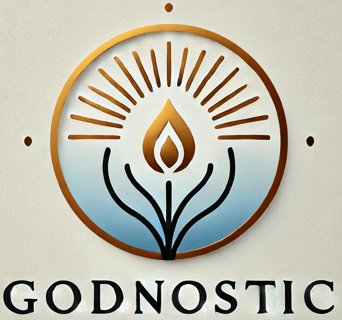Godnostic Congregation Bylaws and FAQs
You didn’t come this far to stop
The Godnostic Congregation operates on principles of transparency, trust, and openness to support its members and ensure orderly growth. These bylaws and FAQs guide the congregation's operations, emphasize its values, and answer common questions about Godnostic practices and beliefs.


1. Membership
Membership in the Godnostic Congregation is open to anyone who provides their details through the official website. Required information includes:
First and Last name
Birthdate
State (for U.S. residents) or country of residence (if outside the U.S.)
A valid email address
Privacy:
Member information is stored securely and never shared, sold, or disseminated to third parties without consent.
Membership Benefits:
Contribute to congregation prayers and readings.
Access to financial reports for transparency.
Notifications about congregation events and changes.
2. Contributions to Content
All members are encouraged to contribute to the congregation’s prayers, readings, and discussions. Submissions become part of the congregation’s archives, with full publication rights granted to the congregation.
Submission Process:
Send suggestions to the Editor at admin@Godnostic.org.
The Editor evaluates submissions for relevance and value.
Invalid suggestions result in direct feedback to the member.
Valid suggestions are adjusted as needed and submitted to the Overseer.
Approved contributions are incorporated into the archives and shared with members.
3. Gifts
Individual gifts to congregation members are prohibited to maintain integrity and equality.
4. Donations
Donations support the congregation’s operations and charitable initiatives. Key guidelines include:
Transparency: All donations and expenses are detailed on the website.
No set amounts or requested percentages.
Excess funds are donated to member-approved charities at year’s end.
5. Places of Worship
Physical churches are unnecessary; dialogue with God is personal. The website serves as a virtual gathering space, and members are encouraged to meet in homes or community spaces as desired.
6. Financial Transparency
The congregation maintains detailed financial records accessible to members. End-of-year surpluses are allocated to charities approved by the congregation.
Key Points:
All donations and expenses are itemized and published.
Withdrawals are detailed, including salaries and purchases.
Financial openness negates the need for non-profit status.
7. Staff and Salaries
The staff structure includes:
Clericals: Handle administrative tasks (max salary: 2x MSA).
Verifiers: Certify charities and ensure proper use of funds (max salary: 5x MSA).
Editors: Assess submissions for congregation archives (max salary: 7x MSA).
Overseer: Approves charities and manages content decisions (max salary: 10x MSA).
Promotion Process: Promotions follow a hierarchical system:
The Overseer selects a replacement from Editors.
Editors promote Verifiers.
Verifiers promote Clericals.
8. Charity Initiatives
Members can propose charitable projects by submitting detailed proposals. Approved projects are funded through member donations, with strict verification processes.
Charity Guidelines:
Verification costs are detailed and posted.
Funds are distributed upon reaching the required amount.
Charitable recipients must provide detailed expense reports.
All charity outcomes are publicly documented.
Frequently Asked Questions (FAQs)
1. Do Godnostics celebrate Christmas?
Yes. Religious celebrations are seen as humanity’s attempt to connect with innate faith. All traditions are welcomed, and participation is encouraged.
2. Can Godnostics marry individuals of other faiths?
Yes. Godnostics believe all religions serve the same purpose, fostering love and unity among people.
3. Do Godnostics believe in Hell?
Hell is considered a human construct. The nature of the afterlife remains unknown and is left to divine wisdom.
4. What happens when we die?
The truth is, no one knows. Godnostics do not adhere to elaborate narratives about the afterlife, focusing instead on living justly and meaningfully.
5. What distinguishes Godnosticism from other religions?
Godnosticism emphasizes simplicity, equality, and the absence of financial exploitation. It fosters unity without creating divisions through dogma or historical conflict.
6. How do I know if I’m a Godnostic?
If practicing the Godnostic Principles and Common Sense Guidelines enriches your faith, you may consider yourself a Godnostic.
7. Where do Godnostics pray?
Prayer is personal and can be done anywhere. Family customs, such as praying before meals or at specific times, are encouraged but not mandated.
8. Are there specific Godnostic readings?
Godnostics value all religious texts as they provide insights into humanity’s innate faith. Reading them fosters understanding and education.
Conclusion
These bylaws and FAQs reflect the Godnostic Congregation’s commitment to openness, unity, and service. Members are encouraged to engage actively, contribute thoughtfully, and uphold the congregation’s principles for the betterment of all.
If you want to add your own question, please do let us know via our Contact Us page.
Connection
A space for exploring divine understanding together.
Faith
Purpose
contact@godnostic.org
© 2025. All rights reserved.
